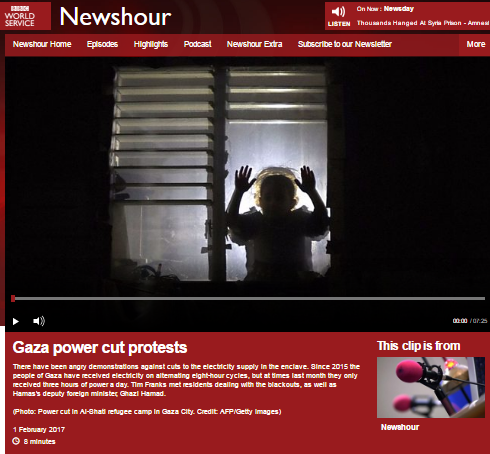1) With the misappropriation of funds and materials intended to better the lives of ordinary residents in the Gaza Strip by Hamas recruited NGO workers having made headlines in the last couple of weeks, Professor Gerald Steinberg takes a look at the bigger picture.
“The broader problem is that due diligence for humanitarian aid in war and terror zones requires the allocation of significant resources and a professional staff capable of detaching itself from the pressures and sympathies of the local environment. World Vision, like most aid groups operating in Gaza, clearly failed in this respect. […]
World Vision’s troubles in Gaza reflect the broader moral failures of the humanitarian-aid industry. The narrow vision of aid workers contribute to a willful blindness to terrorism. The competition for publicity and donations results in alliances with brutal regimes and corrupt warlords. But thanks to the NGO “halo effect,” many donors also neglect due diligence, instead relying on the pure reputation of the recipient organization.”
2) The WSJ’s David Feith takes a look at an issue which, as has frequently been noted on these pages, has long been avoided by BBC journalists: the Palestinian Authority’s payment of salaries to convicted terrorists.
“For two decades the Palestinian government has used U.S. and other foreign taxpayers’ money to pay generous rewards to the families of terrorists. The deadlier the crime, the larger the prize, up to about $3,100 a month, or several times the average salary of a worker in Palestine’s non-terrorist economy. […]
No U.S. official can plead ignorance. Palestinian law has sanctioned these payments since at least 2004, specifying how much money is earned depending on the circumstances of the attacker and the body count. A Palestinian from Israel with a wife and children who kills many people and dies in the act, or is captured and sentenced to more than 30 years in prison, earns the most. Single, childless attackers from the West Bank or Gaza earn less. The incentives are clear.
Palestinian leaders once tried to obscure their payments by characterizing them as “assistance” rather than “salaries.” They also shifted nominal responsibility from the Palestinian Authority (PA), which takes donations from foreign governments, to the Palestine Liberation Organization (PLO), which doesn’t. But this was a sham, as both bodies are run by Mahmoud Abbas and his Fatah party.”
3) The Fathom Journal has a very informative article by Shiraz Maher of KCL titled “Mapping contemporary Salafi-Jihadism“.
4) With the BBC so far having refrained from covering the run-up to the municipal elections scheduled for October 8th in PA controlled areas and the Gaza Strip, Khaled Abu Toameh’s reporting on the campaigning provides invaluable background.
“Hamas, whose leaders seem to be enthusiastic and optimistic about the upcoming vote, has seized the opportunity to wage a massive election campaign on Facebook and Twitter to promote its extremist ideology through intimidation and by accusing its rivals of infidelity, blasphemy and profanity. Hamas’s message to the Palestinian voters: Vote for us or else you will be considered infidels and you will end up in hell.
The first sign of Hamas’s frightening platform emerged when one of its top muftis, Yunis Al-Astal, issued a fatwa (Islamic religious decree) banning Palestinians from voting for any other party other than Hamas. “Any person, male or female, who votes for a party other than Hamas will be considered an infidel and apostate and his or her repentance will not be accepted even if they fasted or prayed or performed the hajj [pilgrimage] to Mecca,” the mufti ruled.
The Hamas fatwa sparked a wave of anger from many Palestinians, who were quick to accuse the Islamist movement and its leaders of waging a campaign of intimidation and terror against voters.”




